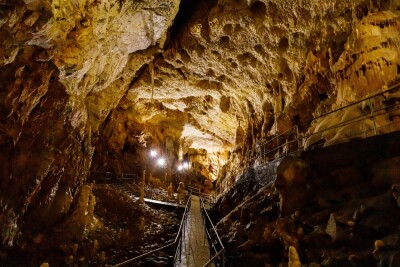Every week, we highlight stories from friends around the internet that put a spotlight on the latest from within the geospatial, advanced visualization, and AEC industries. These stories can take many different forms, whether they be about a new innovation or workflow, an interesting and/or unique use case for technology, or a higher-level look at the state of the sector. Today, we have stories about how 3D mapping techniques are being used to address housing shortages, the importance of standards for the industry, and laser scanning’s usage in paleontology.
Find links to the full articles below.
3D Modeling Helps Planners Find Gaps in Existing Development for Communities Inside the Adirondack Park
Tim Rowland | Adirondack Explorer
Many parts of the United States are dealing with shortages of affordable housing and are looking for feasible ways to address the problem. This article highlights one such technique in Upstate New York, leveraging 3D GIS techniques to identify areas within the county’s 20 hamlets that could be home to new affordable housing projects. The article looks at the complexity of these issues and how this new technology is helping to bridge some of those gaps.
The Crucial Role of Standards for Geodata
Wim van Wegen | GIM-International
Covering the geospatial industry is often easy in some sense, because so much of the work is instantly compelling and it doesn’t take much to make it appealing. Standards, however, don’t really fall into that bucket as they aren’t really the sexiest part of the sector. That being said, they are extremely important and form a crucial background for the industry as a whole. This article dives into that importance, speaking with Peter Parslow, who has played a big role in many of these standards during his time with ISO/TC 211.
3D Laser Scanning Helps Unveil Dinosaur Reproduction Secrets in Hubei Province
Li Yuche | Global Times
In terms of those compelling use cases for the industry, many of the recent use cases that have been highlighted have been with lidar being used to help discover ancient civilizations that had previously been lost to time. It turns out, though, that laser scanning can help us go back even further. This article looks at how the use of 3D laser scanning helped researchers in China make new discoveries around the reproduction patterns of dinosaurs.






